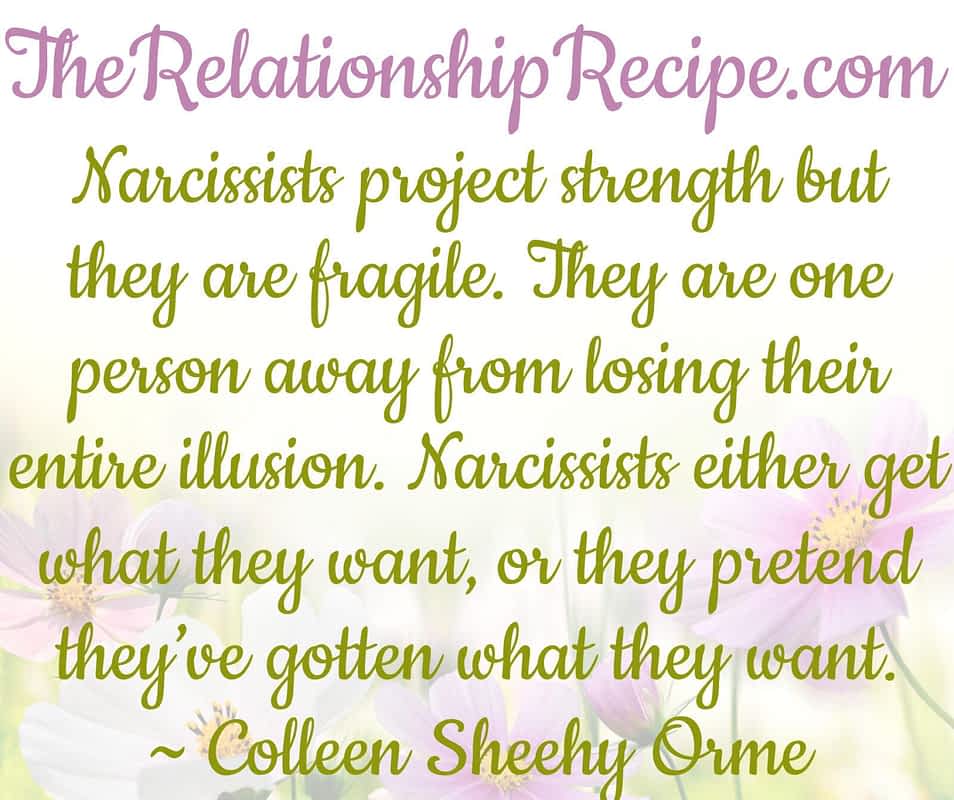Inside the Narcissistic Mind: 5 Reasons Truth Holds No Value
When you’re dealing with someone wrapped up in a narcissistic mind, truth doesn’t just bend… it evaporates. You can lay out the facts, show screenshots, bring the receipts… and somehow you still end up confused, doubting yourself, or on the defensive. Because for narcissists, truth holds no value.
They don’t accidentally twist the facts, they intentionally spin them. Whether it’s dodging accountability or rewriting history mid-argument, narcissistic lies are a weapon, not a slip-up. Narcissists and lying go hand in hand because controlling the narrative means controlling you.
🚀So today, we’re going deep. We’ll crack open the strange logic inside the narcissistic mind, explore why honesty feels threatening to them, break down the five big traits that fuel their behavior, and unpack how to protect yourself from a narcissist’s lies, especially when you’re already worn down and emotionally drained.
💡Key Highlights:
- Why the narcissistic mind rejects reality and twists facts to protect a fragile ego
- The five core traits that shape how narcissists manipulate truth and control others
- How exposing a narcissist to the truth can trigger unpredictable and defensive reactions
- Strategies to recognize, set boundaries, and emotionally shield yourself from their deceptive tactics
- The importance of reclaiming your mental space and choosing what’s best for your well-being in these relationships

Why Can’t the Narcissistic Mind Accept the Truth?
Narcissists don’t reject the truth because they don’t get it. They reject it because it threatens the fantasy. Their ego might look bulletproof on the outside, but it’s paper-thin underneath. Anything that challenges their image, especially truth that calls out their flaws, feels like an attack on their entire identity.
Admitting fault would mean cracking the perfect mask they’ve spent years building. So instead, they dodge it. They deny, gaslight, deflect – whatever it takes to keep control. The narcissist’s lies aren’t just about avoiding blame; they’re about survival. Truth holds no value in their world if it doesn’t serve their ego.

What Really Goes on in the Narcissistic Mind?
Inside the narcissistic mind, there’s a constant tug-of-war between needing nonstop praise and secretly fearing someone will see behind the curtain. What looks like confidence is really just fear in a fancy outfit. Underneath all that swagger is a deep, aching insecurity; one they’ll do almost anything to hide.
So every conversation, every relationship, every moment becomes a performance. It’s not about connection, it’s control. They don’t just crave admiration, they depend on it. And when that praise doesn’t come naturally they manipulate, guilt-trip, and spin the truth to get it. Real emotional intimacy is off the table. You’re not a person to connect with; you’re a mirror to reflect their ego. 🪞
To really get what drives narcissists and their lies, especially in relationships, we need to look at the 5 core traits that shape how they think, love, and manipulate. These traits explain why truth holds no value in their world, and why being close to them can feel so confusing and painful.
.

The Big Five of Narcissism and Why the Truth Holds No Value to Them
To really understand inside the narcissistic mind, we’ve got to look at the five traits that drive everything they do, especially in relationships. These aren’t just personality quirks. These are core behaviors that utilize psychological blackmail, twist reality, destroy trust, and leave the people around them second-guessing themselves. Don’t ever expect empathy from a narcissist, because it’s not coming.
Let’s break it down:
👉1. Grandiosity
A narcissist walks through the world convinced they’re just… more. More special, more deserving, more important. That’s grandiosity in action – this overblown sense of self that demands admiration like air.
But here’s the catch: truth doesn’t flatter. Truth exposes. It pokes holes in the fantasy, reminds them they’re human, and threatens the image they’ve carefully built. To a narc, that is is unbearable.
So instead of facing it, they lie. They twist facts. They rewrite history. The narcissist’s lies aren’t sloppy – they’re strategic. Because if they can control how others see them, they don’t have to deal with the terrifying feeling of not being enough.
This is why truth holds no value to them: it threatens their illusion, and illusions are everything.
👉2. The Need for Admiration
If you’ve ever felt like you were constantly feeding someone’s ego just to keep the peace, you’ve seen this trait up close. Narcissists don’t just like compliments. They need them, constantly, just to feel okay.
But the truth is, it doesn’t always make you look good. Sometimes truth sounds like, “You hurt me.” Or, “You’re wrong.” And for a narcissist, that’s unacceptable.
So they fake it. They create flattering versions of events where they’re always the victim or the hero. These narcissistic lies help them suck in praise and dodge accountability. It’s not about honesty to a narc, it’s optics. And that’s why narcissists and lying go hand-in-hand.
Truth means nothing here either, because the truth risks making them look like anything less than perfect, and they simply can’t handle that.

💡3. Lack of Empathy
If you’ve ever poured your heart out to someone, only to have it met with blank stares, blame, or a total change of subject, you already know what it feels like to deal with a narcissist’s lack of empathy.
Inside the narcissistic mind, your pain isn’t real unless it affects them. They don’t reflect on how their actions make you feel because your emotions don’t register as important. It’s not that they can’t understand hurt, it’s that they won’t. There’s no room in their reality for anything that doesn’t orbit around their needs.
And when the emotional fallout starts piling up, they lie. They gaslight. They rewrite events to make themselves the victim or the misunderstood hero. These aren’t just random fibs; they’re narcissist’s lies designed to dodge emotional responsibility.
That’s the cruelty of it: your hurt gets erased, minimized, or weaponized – all to protect their ego.
👉4. Sense of Entitlement
One of the most maddening things about narcissists is that deep, unshakable belief that the rules just don’t apply to them. They expect special treatment without effort, applause without achievement, and loyalty without reciprocity.
In their eyes, life owes them something and if anyone questions that – get ready for the drama. They’ll spin the story however they need to. Maybe they’re the victim. Maybe everyone else is just jealous. But one thing’s for sure: narcissists and lying are never far apart when their sense of entitlement is on the line.
Instead of facing hard truths about their behavior or actual accomplishments, they create a world where their inflated self-image is always justified. They’ll manipulate facts, feelings, and even you, if it means keeping that “I deserve more” story alive.
If you’re left questioning your own reality after one of their outbursts or guilt-trips, that’s not an accident. That’s part of the game.

👉5. Exploitative Behavior
Being close to a narcissist often feels like you’re being used, even if you can’t quite put your finger on how at first. That’s because in the narcissistic mind, people aren’t partners or loved ones. They’re props. Tools. Means to an end.
Whether it’s emotional labor, attention, money, or status – they’ll take what they want, when they want it. And if you catch on or push back, here come the excuses. The blame. The narcissist’s lies about how you’re “too sensitive,” or how they “didn’t mean it like that,” or worse – how you hurt them.
It’s all part of the manipulation loop. Narcissists and lying are like bread and water sustinance to them when it comes to justifying behavior that, deep down, they know wouldn’t fly in any healthy relationship.
They don’t take accountability because it would mean recognizing that they’ve caused harm, and narcissists just don’t go there. Instead, they reframe everything to keep themselves on top and keep others in their place: useful, loyal, and unquestioning.
Real connection can’t grow in that kind of soil. It’s all take, no give. Eventually, it leaves you emotionally exhausted and doubting your own worth.

What Happens When You Tell a Narcissist the Truth?
So what happens when you finally lay it all out: the facts, your feelings, the raw, unfiltered truth? If you’re dealing with a narcissist, brace yourself. In the narcissistic mind, honesty isn’t seen as connection or growth. It’s seen as a threat.
Instead of pausing to reflect or taking any kind of responsibility, you’ll likely get hit with defensiveness, stonewalling, or full-blown rage. It’s like you’ve just shattered their mirror, and they don’t want to see what’s underneath.
Many narcissists use gaslighting as a reflex. They’ll twist your words, rewrite history, or accuse you of being unstable or dramatic, all in an effort to protect the image they’ve built. And when that doesn’t work, the narcissist’s lies might escalate, or worse, they might lash out, punish you emotionally, or shut down the relationship entirely just to regain control.
Narcissists and lying are tightly intertwined, especially when they feel cornered. When you shine a light on something they want to keep hidden, don’t expect a productive conversation. Expect backlash.
That doesn’t mean you shouldn’t speak up, but it does mean you need to be ready for the fallout. And more importantly, ready to protect your peace.

Do Narcissists Tell the Truth?
Sometimes, but it’s usually only when it benefits them. When a narcissist does tell the truth, it’s often wrapped in half-truths, selective memories, or just enough spin to keep you off balance.
Their lies aren’t always big, bold fabrications. Sometimes they’re subtle omissions, reworded timelines, or twisted versions of reality meant to make you question your own memory. That’s part of the manipulation game.
The thing is, the narcissist’s lies aren’t just about avoiding consequences. They’re a survival strategy for protecting their ego and avoiding vulnerability at all costs. And when you start catching on is when the real damage control kicks in: defensiveness, gaslighting, or playing the victim.
If you find yourself constantly wondering what’s real, or second-guessing your instincts, that’s your sign. Set your boundaries. Tighten your circle. You don’t owe anyone endless patience when they keep handing you twisted truths and calling it honesty.
Understanding how the narcissistic mind works isn’t so you can fix them, it’s about freeing you. Protect your peace. You’re not crazy. You’re catching on.

How to Deal With a Narcissist’s Lies
Dealing with a narcissist’s version of the truth can feel like playing chess with someone who keeps changing the rules. It’s exhausting. But there are ways to protect yourself without getting sucked into their emotional whirlpool.🌀
💡1. Recognize the Pattern
Narcissists lie for many reasons—status, control, image protection. Their deceit isn’t always about malice; sometimes it’s about survival in the fantasy world they’ve built. When you start to notice how their stories shift or how blame is always redirected, don’t gaslight yourself. Seeing the pattern for what it is will help you detach emotionally and stop taking their words at face value.
💡2. Set Boundaries and Mean Them
Boundaries are your emotional immune system. Set them clearly—what you will and won’t tolerate—and stick to them. Whether it’s limiting conversations, keeping certain topics off-limits, or creating physical distance, consistency is key. Don’t waste time explaining boundaries to someone who’s committed to stepping over them. Enforce consequences calmly.
💡3. Prioritize Your Peace
Lies and manipulation wear you down over time. So instead of constantly trying to expose the narcissist or catch them in the act, redirect that energy into your own well-being. Journal, go for walks, meditate, talk with someone safe. You don’t have to keep proving to them—or yourself—that you’re right.
💡4. Don’t Play Their Game
Arguing with someone who rewrites reality is a trap. The more you try to get them to admit the truth, the deeper into their manipulation you fall. It’s not about truth for them; it’s about power. Stay grounded, don’t argue, and when the conversation becomes circular or toxic, disengage. Silence is sometimes your strongest response.
💡5. Get Professional Backup
Therapy can be a lifeline. A counselor familiar with narcissistic behavior can help you navigate the gaslighting, set stronger boundaries, and reconnect with your inner compass. You don’t have to figure this out alone—and you shouldn’t have to.
💡6. Be Calm, Be Clear, Be Direct
If you do confront their lies, keep it simple. Use “I” statements: “I feel disrespected when I’m lied to,” rather than, “You’re always lying.” Avoid drama. Stay steady. It’s not about changing them—it’s about holding your ground and choosing honesty over chaos.
💡7. Build a Circle You Can Trust
Narcissists often isolate the people they manipulate. That’s why it’s essential to surround yourself with people who validate your reality and remind you that you’re not crazy. Talk to friends, join support groups, or connect with others who’ve been through it. Community helps you heal.
💡8. Ask Yourself the Hard Questions
Is this relationship salvageable? Are you sacrificing your own sanity trying to keep the peace? There comes a point when the most loving thing you can do—for yourself—is walk away. Loyalty doesn’t require you to accept manipulation. Choose yourself.

Final Thoughts
Dealing with a narcissist’s lies isn’t trying to manage their behavior, it’s reclaiming your power and protecting your peace. It takes clear boundaries, and a sharp focus on your own emotional health to rise above the chaos they create. With the right support and self-care, you can come out of this stronger, wiser, and in control of your own story. You don’t have to lose yourself to their manipulation.

Thank you for reading this post, don't forget to subscribe!







